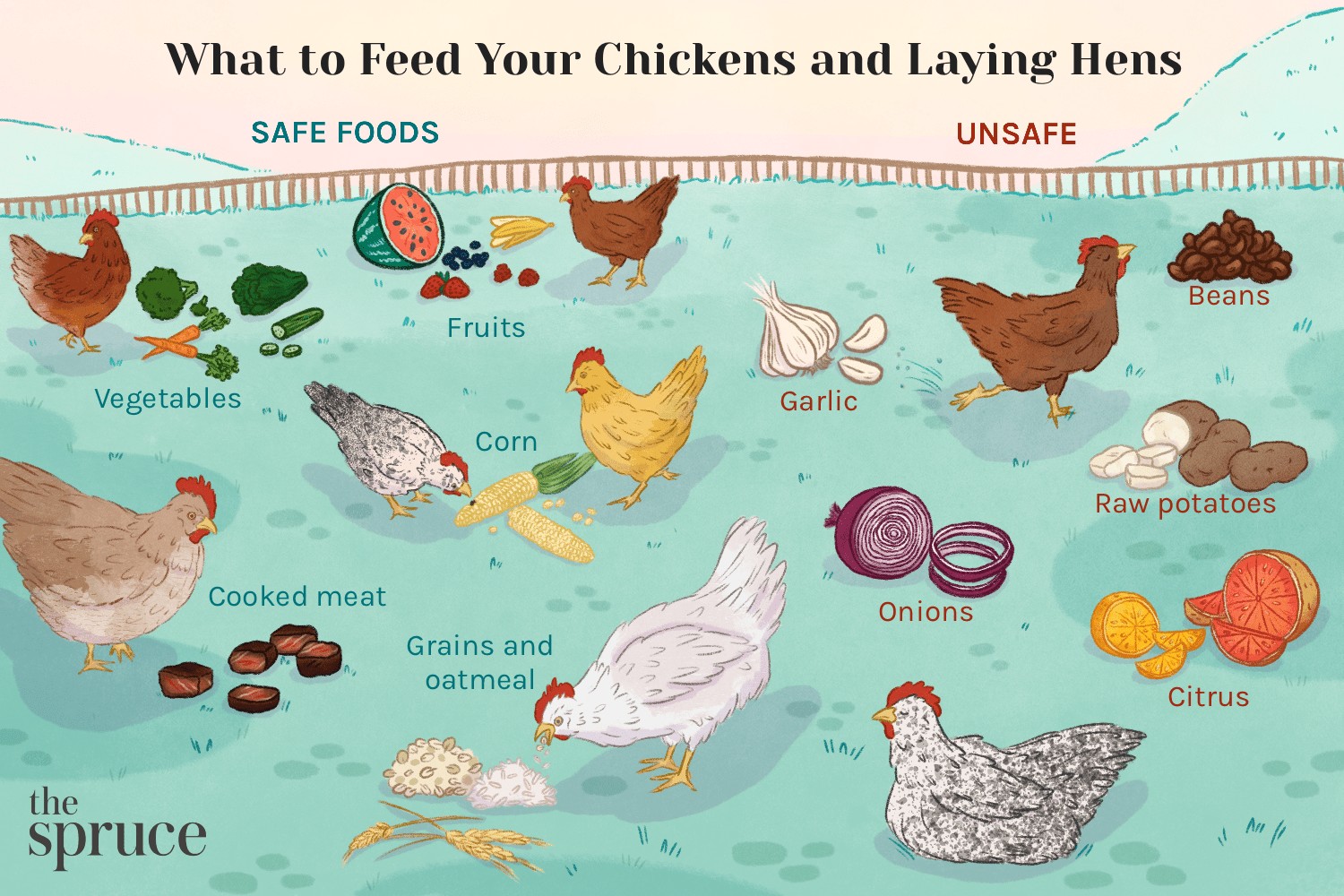Do chickens eat anything? That’s a common question for those new to chicken husbandry. Chickens are omnivores and can eat a variety of food, but there are certain things that chickens should not eat. In this article, we will explore what chickens can and cannot eat, and provide tips on how to ensure that your chickens are getting a healthy and nutritious diet. With the right knowledge, you can be sure that your chickens are getting the best care and nutrition possible and will enjoy a long and healthy life.
What do Chickens Eat?
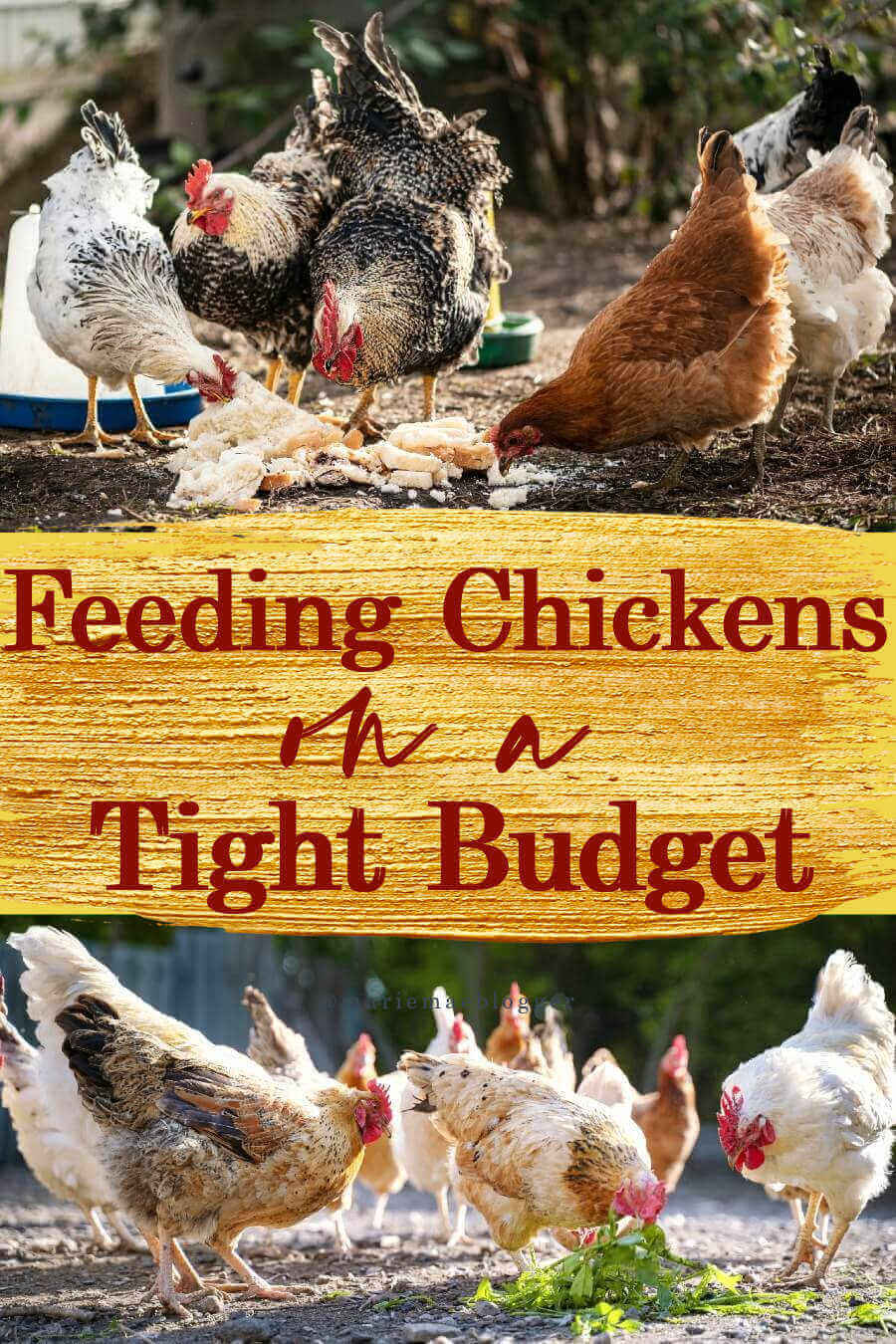
Commercial Chicken Feed
Commercial chicken feed is specifically formulated to provide chickens with all the essential nutrients, vitamins and minerals they need. It is typically composed of corn, wheat, soy, and other grains. It is also supplemented with vitamins, minerals, and essential fatty acids.
Grains
Chickens also enjoy grains such as wheat, barley, oats, and corn. These can be fed as a treat in small amounts. Grains should not make up the majority of a chicken’s diet.
Vegetables
Chickens can eat a wide variety of vegetables, including spinach, carrots, squash, celery, and bell peppers. These can be served cooked or raw.
Fruits
Fruits make a great treat for chickens and can provide additional vitamins and minerals. Apples, melons, blueberries, bananas, and grapes are all enjoyed by chickens.
Meats
Chickens can also eat small amounts of meats, such as cooked eggs and fish. These should only be given as an occasional treat. Raw meats are not recommended for chickens.
What Foods Should Chickens Not Eat?
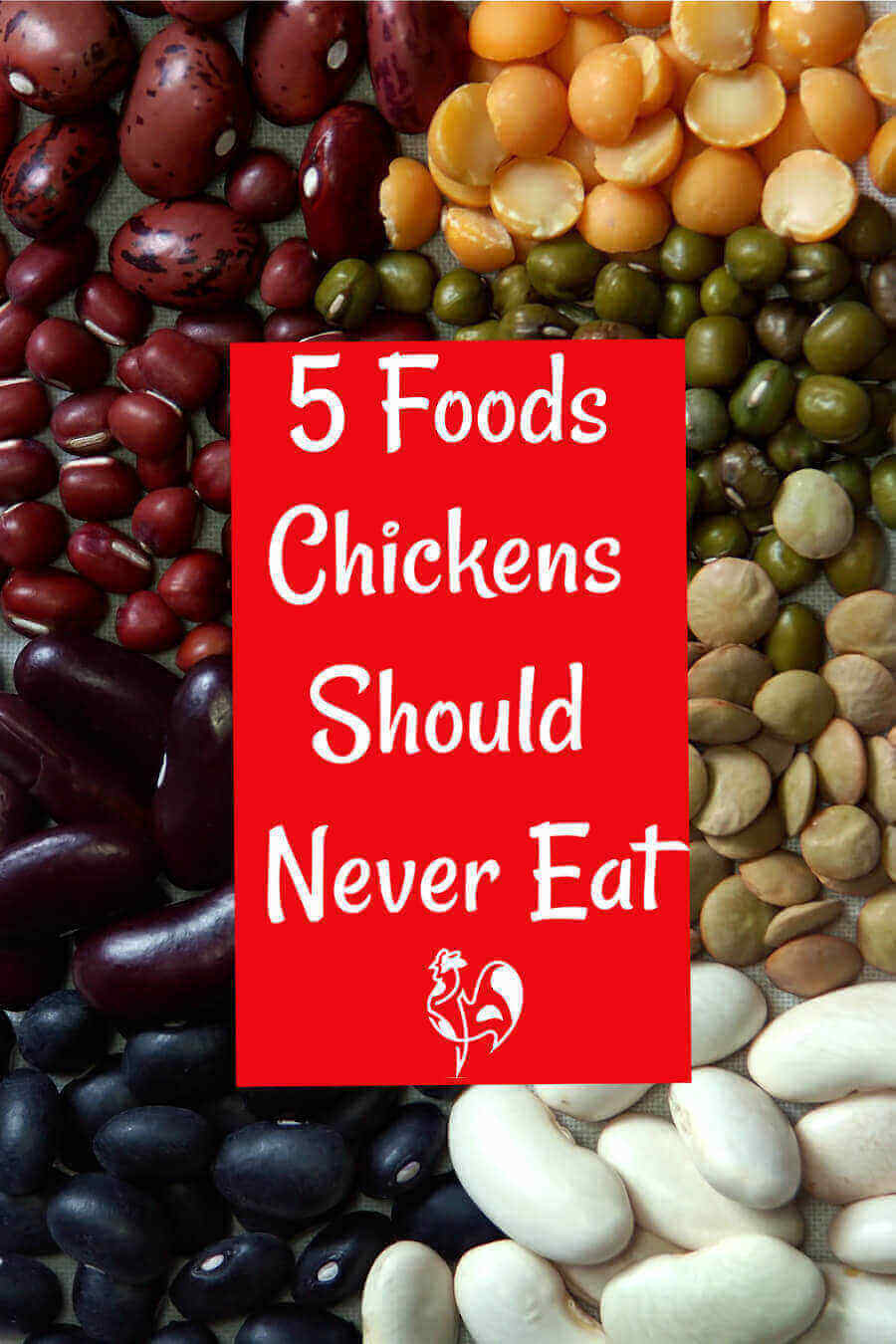
Chickens should not eat any type of raw beans, as they contain toxins that can cause severe health problems. Certain fruits, such as apples, avocados, and cherries, should be avoided due to their high levels of sugar and fat. Chocolate and caffeine are also dangerous to chickens, as they can cause heart problems. Additionally, onions and garlic can cause anemia in birds, so they should also be avoided. Prepackaged snacks and processed foods are also unhealthy for chickens, as they contain too much salt and fat.
Table salt and raw potato peels can also be harmful to chickens, as they contain harmful bacteria and excessive amounts of salt. Moldy or spoiled food, as well as food that has been dropped on the ground, should also be avoided. It is important to note that chickens should never be fed uncooked rice, as it can swell in their crop and cause death.
Table of Foods Not to Feed Chickens:
| Foods to Avoid | Reason |
|---|---|
| Raw Beans | Toxins |
| Certain Fruits | High Levels of Sugar and Fat |
| Chocolate and Caffeine | Heart Problems |
| Onions and Garlic | Anemia |
| Prepackaged Snacks and Processed Foods | Too Much Salt and Fat |
| Table Salt | Harmful Bacteria |
| Raw Potato Peels | Excessive Amounts of Salt |
| Moldy or Spoiled Food | Contain Harmful Bacteria |
| Uncooked Rice | Can Swell in the Crop |
How to Feed Chickens
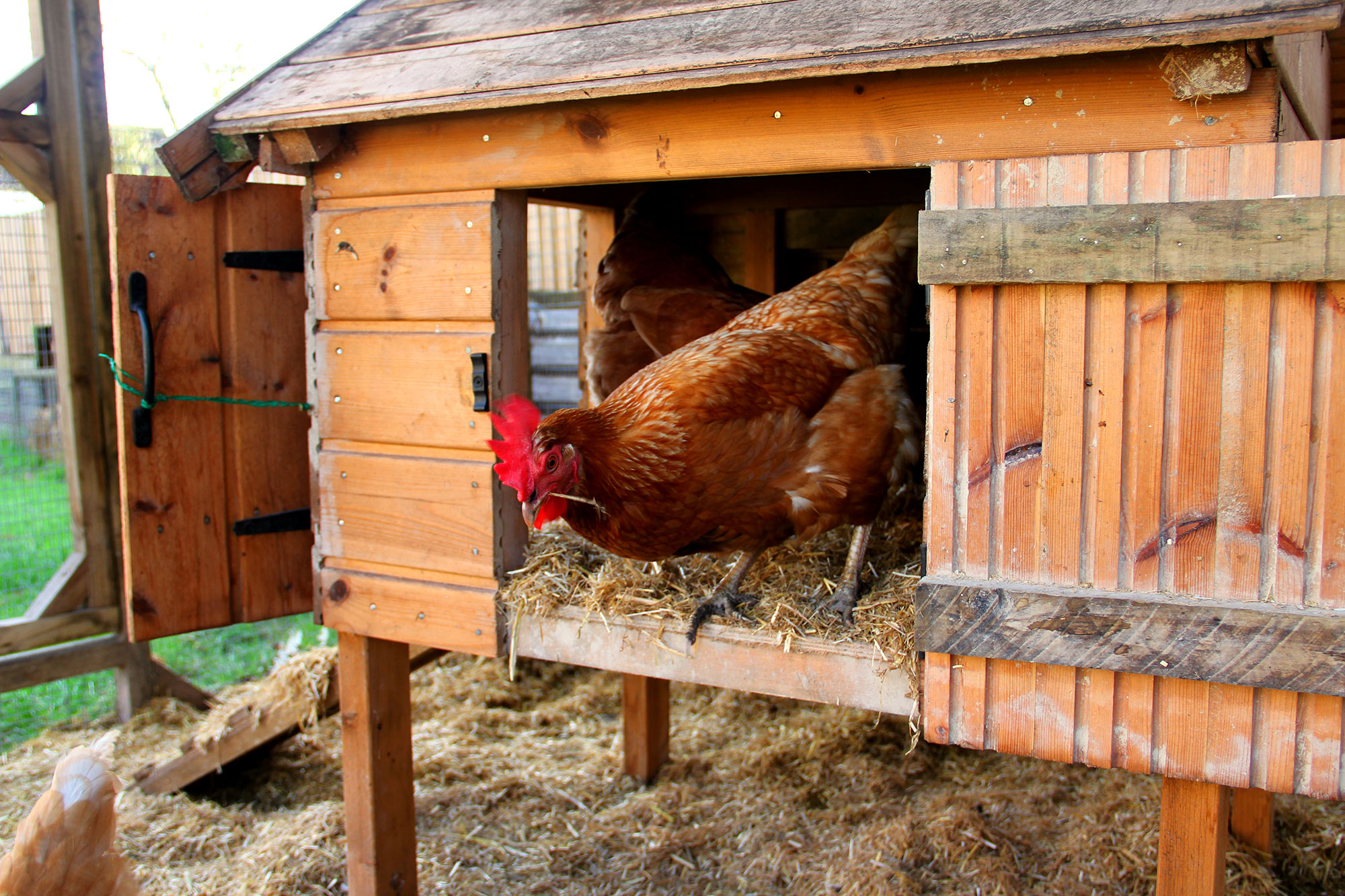
Grains: Chickens can be fed a variety of grains, including corn, wheat, oats, and barley. Whole grains are best, as they contain the most nutrients. Grains should be supplemented with fresh fruits and vegetables.
Pellets: Pellets are a complete source of nutrition for chickens. They should be the primary source of food for chickens, and should be supplemented with fresh fruits and vegetables.
Fruits and Vegetables: Fruits and vegetables should be given to chickens as a supplement to their diet. Vegetables should be washed before giving them to chickens, and some types may need to be chopped into smaller pieces. Fruits can be given in their whole form, but should also be washed before giving them to chickens.
Worms and Insects: Chickens enjoy eating worms and insects, and they provide an important source of protein. Chickens should be given access to bugs, worms, and other insects to supplement their diet.
Treats: Treats should be given sparingly and should only make up a small portion of a chicken’s diet. Common treats include mealworms, dried fruit, and sunflower seeds.
Water: Chickens should always have access to a source of clean, fresh water. Water should be changed daily and should be checked for contamination regularly.
Nutritional Requirements for Chickens
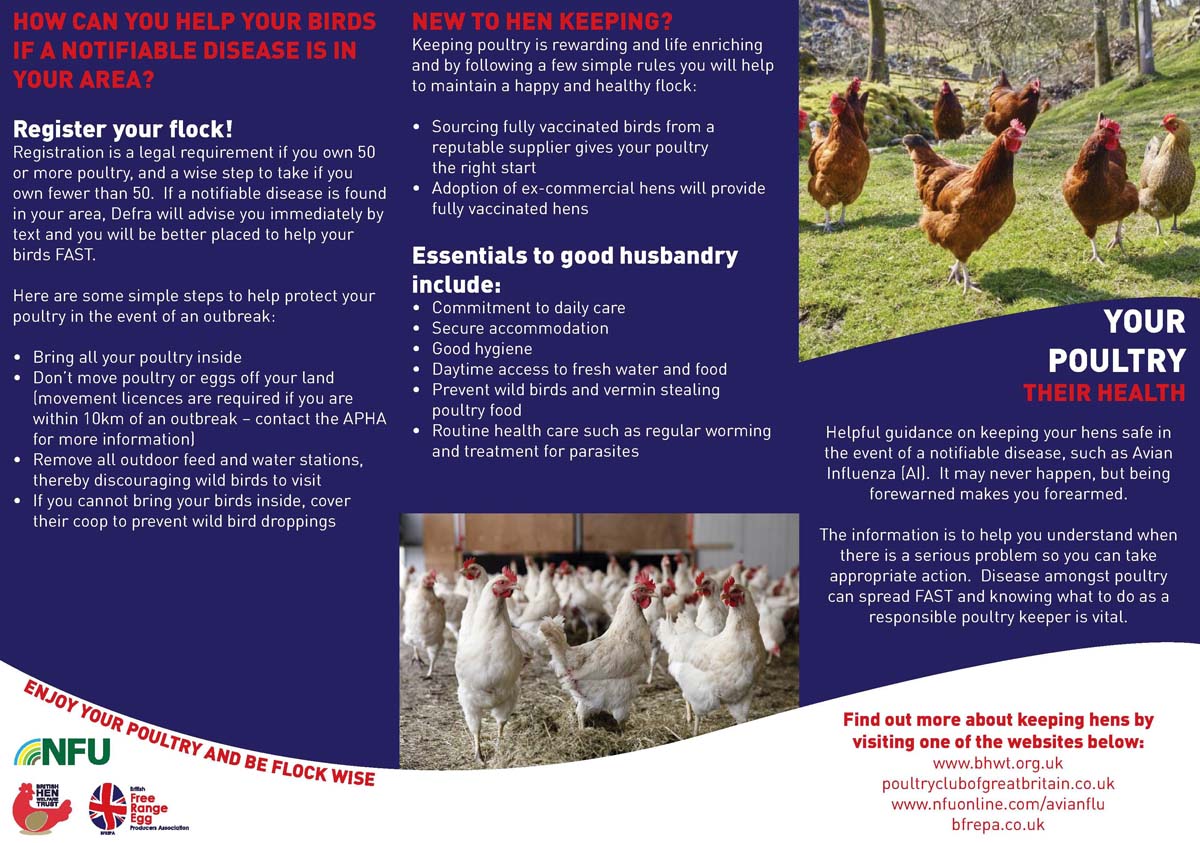
- Protein: Chickens require a diet that is high in protein to support their growth, health and egg production. Protein can be found in foods such as corn, soybeans, peas, oats, and wheat.
- Fats: Fats provide energy and help to keep the feathers and skin healthy. Fats can be found in foods such as sunflower seeds, peanut butter, and vegetable oils.
- Vitamins: Vitamins are important for a well-balanced diet, and can be found in fruit and vegetables, as well as in some commercial chicken feeds.
- Minerals: Calcium, phosphorus, zinc, and iron are important minerals for chickens and can be found in oyster shell, limestone, and kelp.
- Water: Chickens need access to fresh, clean water at all times to support their health and growth. Water should be changed daily and kept away from sources of contamination.
Chickens can also benefit from treats, but these should be given sparingly and should not replace their regular diet. Treats such as mealworms, fruits, vegetables, and grit can be offered as occasional snacks. It is important to remember that chickens need a balanced diet to stay healthy and productive.
Supplements to Feed Chickens
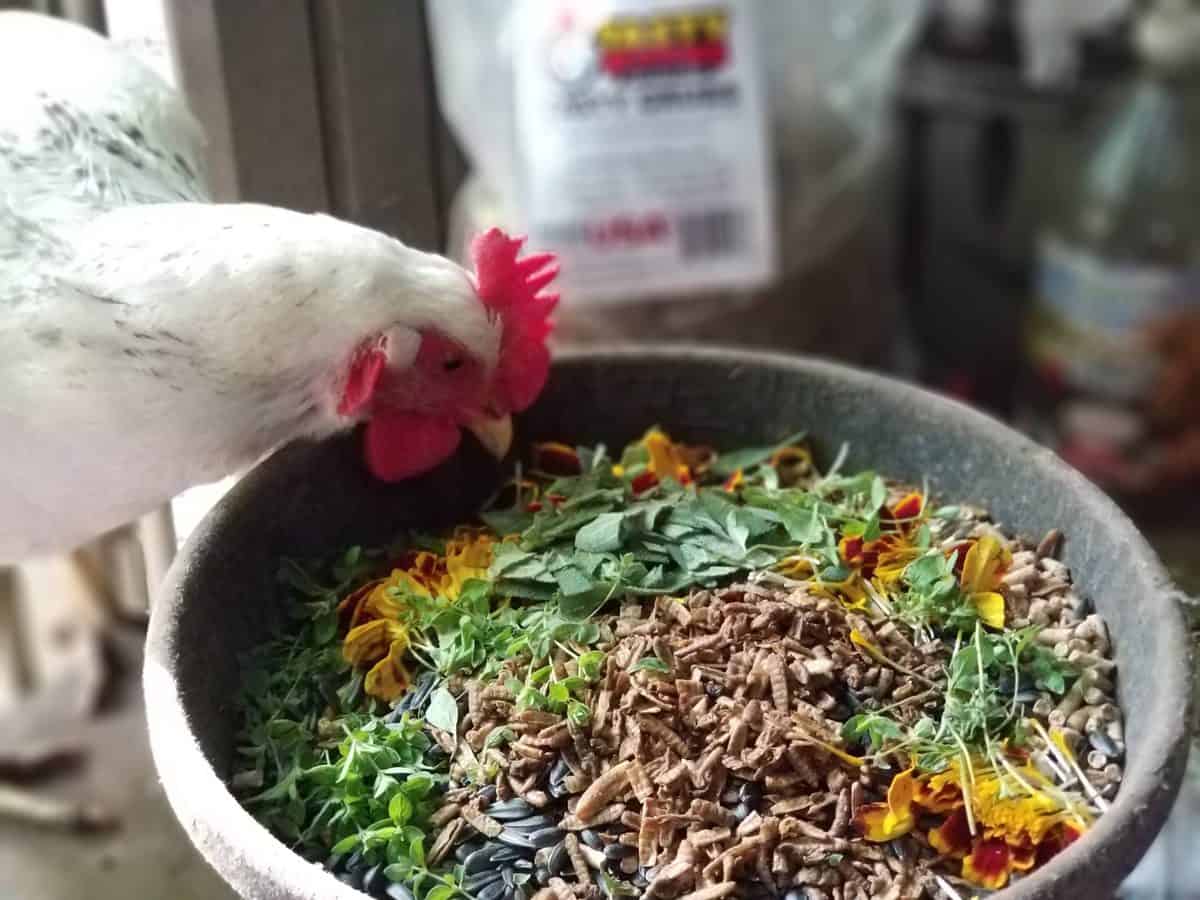
Chickens need supplements to their diet to stay healthy. These can include:
- Grit: Grit helps chickens digest their feed. You can feed your chickens grit either free-choice or mix it into their feed.
- Oyster Shells: Oyster shells provide a great source of calcium for chickens, helping with eggshell strength. You can feed your chickens oyster shells in a separate dish or mix it into their feed.
- Vitamins and Minerals: To make sure your chickens are getting the vitamins and minerals they need, you can add a vitamin and mineral supplement to their feed.
- Probiotics: Probiotics help support your chickens’ digestive health and can be added to their feed.
It’s important to provide your chickens with a balanced diet that includes all the nutrients they need. Be sure to consult a veterinarian or nutritionist to make sure you are feeding your chickens the right supplements.
Treats to Feed Chickens
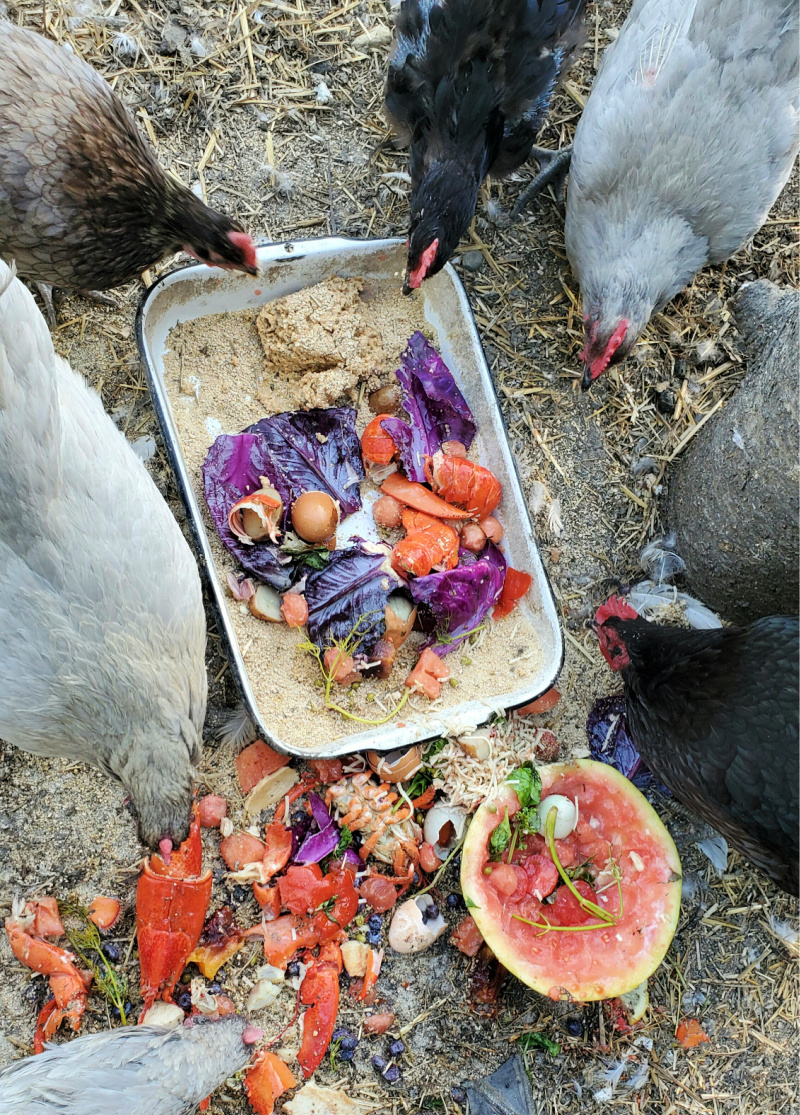
Chickens can be fed treats as a way to supplement their diet. Treats should be fed in moderation, and should not be the main source of nutrition for chickens. Treats provide chickens with a variety of different flavors and textures, as well as a source of vitamins and minerals. Here is a list of some common treats that can be fed to chickens:
| Treat | Benefits |
|---|---|
| Fruit and Vegetables | Provide vitamins, minerals, and antioxidants. |
| Grains | Provide essential carbohydrates and proteins. |
| Berries | Provide antioxidants and other vitamins. |
| Insects | Provide protein and other essential nutrients. |
| Yogurt | Provide beneficial bacteria and calcium. |
When feeding treats to chickens, it is important to remember that treats should only be fed in moderation. Treats should not replace the main source of nutrition for chickens. Additionally, treats should be offered in small amounts to ensure that the chickens do not become overweight or unhealthy.
Cleaning Up After Feeding Chickens
- Empty Food Containers: At the end of each day, it is important to empty and clean the food containers that have been used for feeding your chickens.
- Clean Up Spilled Food: If any food has been spilled during the feeding process, be sure to clean it up promptly to avoid attracting pests or rodents.
- Discard Unused Feed: Any food that is not consumed by the chickens should be discarded to prevent spoilage.
- Sanitize Feeding Equipment: After you have finished feeding the chickens, it is important to sanitize all of the feeding equipment used to ensure the health of the chickens.
- Check For Droppings: You should also check the area where the chickens were fed for droppings and clean them up to reduce the risk of bacteria or disease.
Frequently Asked Questions
What are some common food items that chickens should not eat?
Chickens should not eat any of the following:
- Raw potatoes, potato skins, or green potatoes
- Chocolate
- Raw beans
- Citrus fruits
- Spicy foods
- Onions
- Garlic
- Avocado
- Apple seeds
- Rhubarb
- Moldy or rotten foods
Chickens should also avoid sugary, processed, and fried foods, as these can lead to health issues in chickens. In addition, moldy, spoiled, or expired foods can lead to serious illness and even death in chickens.
How often should chickens be fed?
Daily: Chickens should be fed daily and given access to clean, fresh water.
Morning and Evening Feedings: Twice daily feedings are best for chickens, once in the morning and once in the evening.
Grain Feeds: A good-quality, balanced poultry ration should be provided for the chickens. A layer feed for hens and a grower feed for chicks.
Treats: Treats such as mealworms, kitchen scraps, and other table scraps can be offered to chickens as a supplement to their regular diet, but should not exceed 10% of their daily ration.
Grit: Grit should be provided to chickens to help them digest their food.
Grass: Chickens should also be given access to grass or other vegetation to supplement their diet.
What Kind of Feed Should I Provide for My Chickens?
Chickens need a balanced diet of grains, protein, vitamins, minerals, and essential fatty acids. Commercial feed is the most common source of nutrition for chickens, and is available in both mash and pellet form. Layer feed is specially formulated for chickens that are producing eggs, while starter/grower feed is for young chicks. Insects, kitchen scraps, and green vegetation can also be given to chickens as supplements to their regular diet.
Are there any special dietary requirements for baby chicks?
Baby chicks require a balanced diet of carbohydrates, proteins, and fats, as well as vitamins and minerals. A starter feed specifically designed for chicks should be used for the first few weeks of life, with a transition to a grower feed made for older chicks. It is important that the feed is fresh and free of contamination. Additionally, chicks should always have access to fresh, clean water. Calcium should also be provided in the form of crushed oyster shells or other sources.
What Foods Can I Offer My Chickens as Treats?
Chickens, like all animals, enjoy treats! Here are some safe, healthy treats you can offer your chickens:
- Fruits and Vegetables: Fruits and vegetables make excellent treats for chickens, such as apples, melons, bananas, and cooked sweet potatoes. Avoid giving them citrus fruits, as they are too acidic.
- Greens: Chickens love dark, leafy greens, such as kale, spinach, lettuce, and Swiss chard. Avoid feeding them iceberg lettuce, as it contains very little nutritional value.
- Grains: Grains are a great source of proteins and vitamins for chickens. Offer them cooked oats, barley, millet, or quinoa for a nutritious treat.
- Insects: Chickens love to hunt and forage for bugs. You can offer them slugs, worms, or crickets as a special treat.
- Cooked Grains: Cooked grains, such as rice, quinoa, or oatmeal, are a great source of energy and vitamins. Avoid giving them uncooked grains, as they can cause digestive problems.
- Yogurt and Cheese: These dairy products are a great source of calcium and proteins for chickens. Avoid giving them too much, as it can lead to an unbalanced diet.
Always make sure to give your chickens treats in moderation. Too many treats can lead to an unbalanced diet, which can cause health problems.
Conclusion
Chickens are omnivores and their diet can include a variety of foods. However, there are certain items that should be avoided as they can cause serious health issues. As a responsible chicken owner, it is important to understand the basics of chicken husbandry and the types of food that are safe for your birds. With the right diet and care, chickens can remain healthy and happy.
